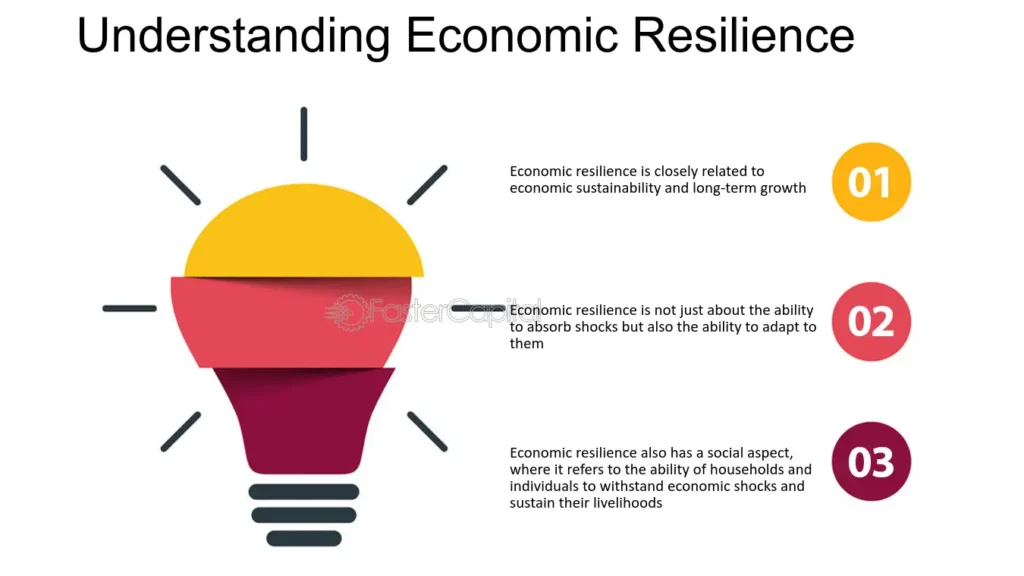In 2025, the global economy continues to navigate a complex web of challenges, from inflationary pressures to shifting market dynamics. Amid these uncertainties, financial resilience has become more crucial than ever. Building financial resilience isn’t just about surviving tough times; it’s about thriving and maintaining stability regardless of economic conditions. Here’s how you can achieve this in 2025.


1. Set Clear Financial Goals
The foundation of financial resilience starts with clarity. Define what financial stability means to you. Is it saving for a home, building an emergency fund, or reducing debt? Setting specific, measurable, achievable, relevant, and time-bound (SMART) goals will provide direction and motivation.
Actionable Tip: Break long-term goals into smaller, manageable milestones. For instance, if you aim to save $10,000 by year-end, aim for $833 per month.
2. Embrace Budgeting as a Lifestyle
Budgeting isn’t just a tool; it’s a habit. A well-planned budget allows you to allocate your resources effectively, ensuring that you prioritize essentials while saving for the future.
Actionable Tip: Use the 50/30/20 rule: 50% of your income for necessities, 30% for discretionary spending, and 20% for savings and debt repayment.
3. Build a Robust Emergency Fund
An emergency fund acts as a financial safety net, protecting you from unexpected expenses such as medical bills or car repairs. Aim to save at least three to six months’ worth of living expenses.
Actionable Tip: Automate savings by setting up a direct deposit to a separate savings account. Treat it like a non-negotiable expense.
4. Diversify Your Income Streams
Relying on a single source of income can be risky in uncertain economic times. Diversifying your income not only increases your earnings but also provides a buffer during downturns.
Actionable Tip: Consider freelance work, investments, or starting a side hustle that aligns with your skills and interests.
5. Invest Wisely for Long-Term Growth
Investing is key to building wealth over time. In 2025, look for opportunities in sectors like renewable energy, technology, and healthcare, which are poised for growth.
Actionable Tip: Start small with index funds or ETFs if you’re new to investing. Diversify your portfolio to reduce risk.
6. Pay Down High-Interest Debt
High-interest debt, such as credit card balances, can quickly erode your financial stability. Prioritize paying off these debts to free up resources for savings and investments.
Actionable Tip: Use the snowball or avalanche method to tackle debt systematically. The snowball method focuses on paying off the smallest debts first, while the avalanche method targets the highest interest rates.
7. Adapt to Inflation Trends
Inflation remains a concern in 2025, affecting the cost of living and purchasing power. Counter its impact by adjusting your spending habits and exploring inflation-resistant investments, such as real estate or commodities.
Actionable Tip: Review your subscriptions and discretionary spending. Cut back on non-essentials and redirect funds to high-priority areas.
8. Invest in Financial Literacy
Knowledge is power when it comes to managing money. Stay informed about personal finance trends, tax changes, and investment opportunities to make better financial decisions.
Actionable Tip: Dedicate time each month to reading finance blogs, listening to podcasts, or taking online courses on money management.
9. Leverage Technology for Financial Management
Apps and tools can simplify financial management, from tracking expenses to automating savings and investments.
Actionable Tip: Use apps like Mint, YNAB (You Need A Budget), or Robinhood to monitor your financial health and make informed decisions.
10. Plan for Retirement Early
It’s never too early to think about retirement. Consistent contributions to retirement accounts, such as a 401(k) or IRA, will compound over time, ensuring a comfortable future.
Actionable Tip: Take advantage of employer matching programs and aim to contribute at least 15% of your income to retirement savings.
Conclusion
Financial resilience in 2025 is about taking proactive steps to protect and grow your wealth. By setting clear goals, embracing smart budgeting, and staying informed, you can navigate economic uncertainties with confidence. Start today, and you’ll build a financial foundation that withstands any storm.












